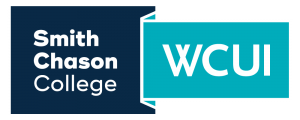Start Building a Better Future
Now enrolling for a January 3rd start
Smith Chason College School of Medical Imaging combines a legacy of educational experience with a real commitment to student success. Since 1998, our experienced instructors have been educating the next generation of sonographers and MRI technologists, turning your passion into real skills and knowledge. Since your education is our top priority, we’ve introduced hybrid programs that combine online lectures with in-person labs. This will allow you to acquire the hands-on instruction you need with fewer disruptions to your life and responsibilities.
Discover more at Smith Chason College — request more information today!
- Bachelor’s Degrees
- Diagnostic Cardiovascular Sonography
- Diagnostic Medical Sonography
- Associate Degrees
- Diagnostic Medical Sonography
- Cardiovascular Sonography
- Magnetic Resonance Imaging
- Diploma Programs
- Magnetic Resonance Imaging (Short)
- Pediatric Cardiac Ultrasound and Congenital Heart Disease
Program availability and degree offerings vary by location and are subject to change.

Accreditation &
Licensure

Registry
Affiliations



Frequently Asked Questions about Smith Chason College
Your Smith Chason College education can be divided in three sections:
Lecture – Online through asynchronous courses + Through live zoom lectures
Lab – In-person on campus
Externship – 6 months In-person at a designated site
Communication is critical to your development and success
Time flies when you’re having fun and learning! Your first few courses are the building blocks to your educational journey if you are struggling to comprehend a subject or balancing your schoolwork and life, cracks in those building blocks will develop. It is important to keep an open dialogue with your instructors, student services team, and program director and reach out if you are struggling. They are there to help assess and cultivate a plan that can help you succeed
Like learning a new language
You’ll be learning new terms that will become part of your day-to-day conversations and evaluation of patients
You’ll build on this language from the very beginning, all throughout your education and well into your career
Patients from all walks of life will need your help, compassion and professionalism
In the medical field you will have the opportunity to help people from all parts of your community including those who may be low-income, struggling with homelessness, enduring extreme pain or mental illness. Often people who require medical help are not at their best and will need compassion and care from their physicians, technologists, nurses, and therapists. Your attitude can affect their medical journey
Hands-on work
You will need to be hands on with your patients requiring you to be comfortable with touching other people
You will also need to hold and manage equipment with your hands oftentimes while multitasking and utilizing hand-eye coordination to complete your job
Vaccinations may be required by your externship site or future employer
As part of the healthcare industry, you are exposed to viruses and diseases that the common population does not come across every day. Your future employer and externship site may require vaccinations to work at their facility
This includes vaccinations against the Flu, Annual TB, Hepatitis, COVID-19, etc. as required by your Externship site or Employer
Externship is a critical time that will help you develop real experiences in your chosen field
During externship you will spend 6 months working alongside other healthcare professionals who will teach you the ins and outs of your chosen field. This will require potentially long and late hours, hand-on work with patients, and travel to your designated externship site
This is the moment you can take the skills and knowledge you built in lecture and in lab and apply it to the field! You will have mentors with years of experience guiding you but there will be moments where you will need to follow instructions and work on your own
You will need to maintain a professional manner – you’re with real patients now! And they’re counting on you.
What is a transfer credit?
All transfer credits will be evaluated by the Smith Chason College Registrar office. Eligible transfer credits must be from a previous college level course, this does not include AP level high school courses.


